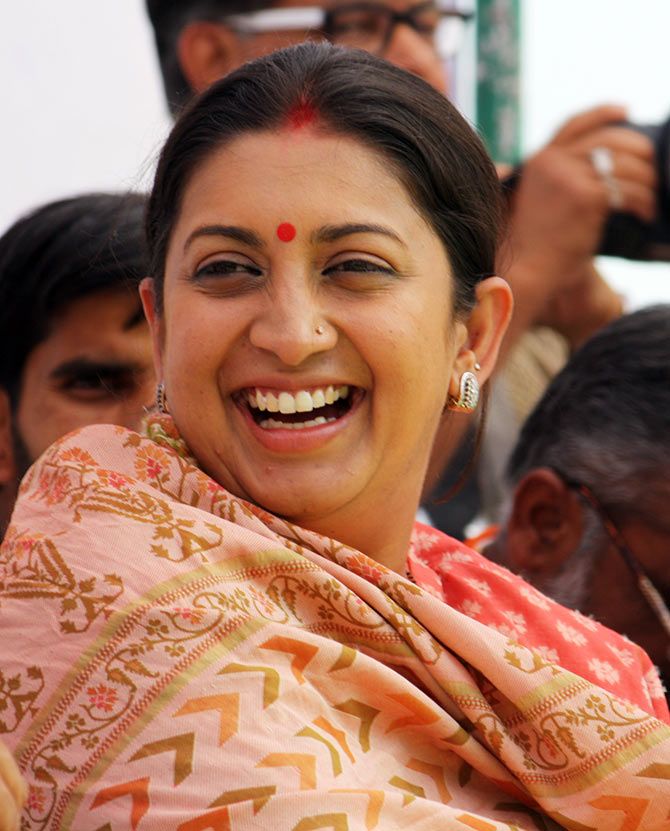 Taking on her critics, Human Resource Development Minister Smriti Irani on Sunday dismissed charges that education was being saffronised even as she turned down demands that Sanskrit be made compulsory in the curriculum.
Taking on her critics, Human Resource Development Minister Smriti Irani on Sunday dismissed charges that education was being saffronised even as she turned down demands that Sanskrit be made compulsory in the curriculum.
“Those who accuse me of being a Rashtriya Swayamsevak Sangh mascot or RSS representative possibly want to deflect the attention from the good work that we have done... this agenda will be flagged and I will be whipped for as long as there is a need to keep attention diverted away from the good work. I am ready for it. I have no problem,” she said.
Answering questions on the controversial decision to replace German with Sanskrit as the third language in some 500 centrally-run Kendriya Vidyalayas, Irani said that teaching of German under an MoU signed in 2011 had been in violation of the Constitution. An investigation has already been launched to find out how the MoU came to be signed.
Responding to demands that Sanskrit be made a compulsory language, the minister said that the three language formula was very clear that any of the 23 Indian languages listed in Schedule 8 of the Constitution could be opted for. But she reiterated that German will continue to be taught as a foreign language.
“We are teaching French, we are teaching Mandarin, we teach German in the same way. For the life in me, I can’t understand why people do not understand what I am saying,” she said.
Irani had earlier strongly defended the decision to replace German with Sanskrit as the third language, saying the existing arrangement was in violation of the Constitution.
Dismissing charges that efforts were being made to saffronise education, the minister said she has never tried to explain herself on the “basis of secularism with respect to saffronisation in terms of education” while citing examples of choosing heads of institutions irrespective of their religion.
Irani said while rolling back the Four Year Undergraduate Programme of Delhi University, she never had in mind which region or religion they (the students) had come from.
In this context, she defended the decision to roll back the programme, saying the degrees offered had no “legal sanction”. “My endeavour is whatever I do should be done so that it is within law and favours the students,” she asserted while rejecting the notion that education is being politicised in the country.
Talking about the moves to have a new national education policy, the deliberation of which would start next year, she said the exercise would be exhaustive in nature and involve all stakeholders, besides academicians and experts, who are directly impacted by it.
Queried about criticisms that none of the Indian universities find a place among the top 100 institutions in the world, she pointed that ranking agencies have their own parameters for evaluation. Irani further asserted that India will have its own ranking system in place soon.











 © 2025
© 2025